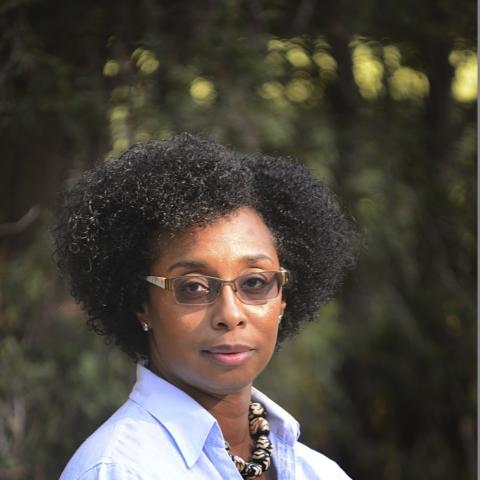Ivy Forsythe-Brown, Ph.D.

Teaching Areas:
African & African American Studies, Arab American Studies, Religious Studies, Sociology, Women's & Gender StudiesResearch Areas:
Family, Immigrants / Immigration, Race / Ethnicity, Social Justice / InequalityBiography and Education
Dr. Forsythe-Brown’s research focuses on the incorporation of racial/ethnic minority groups into the U.S., Canada, and Britain. In particular, she is interested in the paths of upward social mobility and the overall well-being of these groups associated with kinship networks, social support and transnational connections. Also of interest are the challenges minorities and immigrants face such as, discrimination, exclusion, acculturative stress and negative health outcomes. Her research projects have examined racial discrimination among Black Caribbean immigrants, transnational immigrant family relations and patterns of kin support, the health of Black Caribbeans in the U.S. and Jamaica, the socioeconomic status and religious affiliations of second generation South Asian Muslims, and the intersection of family relations, gender, and educational attainment among second generation, Arab American young adults. Overall, Dr. Forsythe-Brown’s work contributes to the understanding of and variability in socioeconomic success and health outcomes within minority populations. The findings of her work suggest that sociodemographic correlates such as, gender, marital status and age, influence the frequency of everyday discrimination, types of extended family networks, and the risk for poor network relations and social support.
Education
Post-Doctoral Fellowship, University of Michigan, Ann Arbor
Ph.D., University of Maryland, College Park
M.A., Eastern Michigan University
B.A., Eastern Michigan University
Selected Publications
Aronson, Pamela and Ivy Forsythe-Brown. Forthcoming. “‘The scarf on my head in not oppressing me. I can become who I want:’ The college experience of Arab American women in the U.S.” To appear in Gender and Youth Migration: A Global Survey, edited by Glenda Tibe Bonifacio.
Forsythe-Brown, Ivy, Robert Joseph Taylor, Linda M. Chatters, Ishtar O. Govia, and James S. Jackson. 2017. “Kin support in Jamaican families in the USA and Jamaica.” Journal of African American Studies Springer. DOI 10.1007/s12111-017-9355-7
Taylor, Robert Joseph , Ivy Forsythe-Brown, Dawne M. Mouzon, David Chae, Jamila McLean, and Linda M. Chatters. 2017. “Prevalence and correlates of everyday discrimination among Black Caribbeans in the United States: The impact of nativity and country of origin.” Ethnicity and Health DOI: 10.1080/13557858.2017.1346785
Lacey, Krim K., Dawn M. Mouzon, Ishtar O. Govia, Niki Matusko, Ivy Forsythe-Brown and James S. Jackson. 2016. “Substance use among Blacks across the diaspora.” Substance Use and Misuse DOI: 10.3109/10826084.2016.1160124
Thornton, Michael C., Robert Joseph Taylor, Linda M. Chatters and Ivy Forsythe-Brown. 2016. “All Black together?: African American and Black Caribbean feelings of closeness to Africans.” Identities: Global Studies in culture and Power DOI: 10.1080/1070289X.2016.1208096
Lacey, Krim, Karen Sears, Ishtar O. Govia, Ivy Forsythe-Brown, Nikki Matusko, and James S. Jackson. 2015. “Substance use, mental disorders and physical health of Caribbeans at-home compared to those residing in the United States.” International Journal of Environmental Research and Public Health (IJERPH) 12: 710-734. Special Issue - Jorge Delva (co-editor), Taylor Francis.
Taylor, R. J., Forsythe-Brown, I., Lincoln, K. D., & Chatters, L. M. (2015). Extended Family Support Networks of Caribbean Black Adults in the United States. Journal of Family Issues, 0192513X15573868.
Taylor, Robert Joseph, Ivy Forsythe-Brown, Harry Owen Taylor, and Linda Chatters. 2014. “Patterns of emotional social support and negative interactions among African American and Black Caribbean extended families.” Journal of African American Studies, 18: 147-163. Springer.
Jackson, James S., Ivy Forsythe-Brown, and Ishtar O. Govia. 2007 “Age cohort, ancestry and immigrant generation influences in family relations and psychological well-being among Black Caribbean family members.” Journal of Social Issues 63(4): 729-734. John Wiley and Sons
